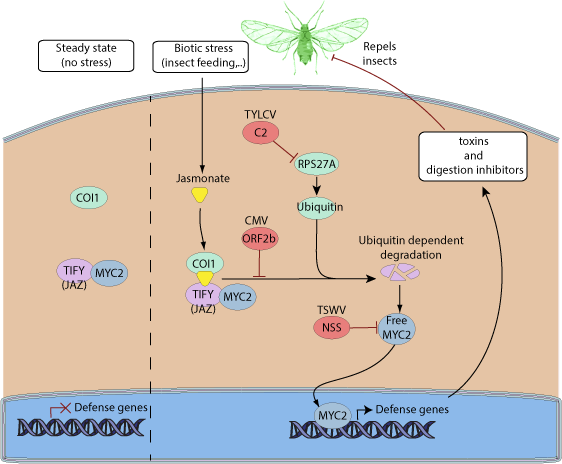Jasmonate signaling inhibition
Jasmonate signaling:
Insects feeding on a plant release jasmonate, which initiates the degradation of JAZ via the ubiquitin pathway. The host protein JAZ sequesters the transcription factor MYC2 in the cytoplasm, which is released upon proteolytic destruction of JAZ and migrates to the nucleus to activate host defense genes. This leads to the production of toxins and digestive inhibitors that repel insects from the plant.
This scenario is not advantageous for insect-borne plant viruses, as driving insects away from the infecting plant is detrimental to virus spread. Therefore, many plant viruses have evolved a mechanism that inhibits jasmonate signaling, making the infected plant attractive to insect vectors.

Manipulation of Jasmonate Signaling by Plant Viruses and Their Insect Vectors
Xiujuan Wu, Jian Ye
Review Viruses. 2020 Jan 27;12(2):148.

